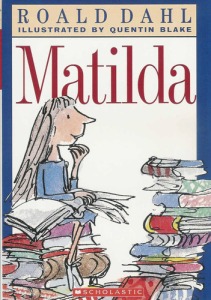Hello all!
This week we’re talking about banning books. Censorship. It’s a subject that’s come up time and time again, particularly in the case of children’s literature. The literature we use in schools and expose our children to is a sensitive subject that has many people up in arms. The American Library Association has an entire week (this year it was September 27th to October 3) where they discuss banned books and celebrate the freedom to read.
The ALA has a list of the most frequently challenged books. Some titles included on the list are The Harry Potter Series by J.K. Rowling, The Hunger Games Trilogy by Suzanne Collins, classics like To Kill a Mockingbird by Harper Lee, The Adventures of Huckleberry Finn by Mark Twain, and even modern series like Captain Underpants by Dav Pilkey.
One series that is frequently challenged is His Dark Materials, a three book series by Philip Pullman. The books, The Golden Compass, The Subtle Knife, and The Amber Spyglass, come under fire for their anti-Christian sentiments.The series deals with a fantasy world where the Church is regarded as a negative force, doing horrible things to the main characters, Lyra and Will, and acting as the main villain of the story.
Pullman himself has gone on record saying things like, “It’s not the presence of the Christian doctrine I object to so much as the absence of Christian virtue.” and, “I think my position would be that throughout human history, the greatest advances have been made by religious leaders such as Jesus and the Buddha. And the greatest moral wickedness has been perpetrated by their followers.” (Speakman, 2010).
One of the main characters, Mary, says in the book, “The Christian religion…is a very powerful and convincing mistake, that’s all.” (“His Dark Materials – Controversies”, n.d.). When this quote was used to criticize his work, Pullman responded with, “Mary is a character in a book. Mary’s not me. It’s a story, not a treatise, not a sermon or a work of philosophy.” (“His Dark Materials – Controversies”, n.d.).
His Dark Materials may be a controversial series, but they are well written and enticing for young readers. Filled with fantasy and scientific fictional elements, the books draw readers into a magical world and keeps them hooked for three novels. It’s important to note that not all Christians oppose these books; Rowan Williams, the former Archbishop of Canterbury (who is the head of the Anglican church) thinks that Pullman’s criticisms focus on the dangers of the religious dogma and the potential to use the religion to oppress, not necessarily on the religion itself. Williams has actually recommended that the books should be discussed in religious education classes (“His Dark Materials – Controversies”, n.d.).
I believe that this book series would be fascinating to teach in a classroom setting. Students can discuss the scientific fiction elements of the book series, the legitimacy of the possibility of the technology they’re using in conjunction with the magical elements of Lyra and Will’s world. Older students can also discuss the criticism Pullman is writing about the Catholic Church, the faith, and the dogmatic systems in place. Students will practice critical thinking skills as well as creative thinking skills when they study these books.
Censorship is a slippery slope. The freedom to read is important for our children and our society. Book series like His Dark Materials have the potential to unlock many benefits for readers.
What do you think? Let me know in the comments!
Until next week,
Ms. Valentine
References
His Dark Materials – Controversies. (n.d.). Retrieved from http://en.wikipedia.org/wiki/His_Dark_Materials#Controversies
Speakman, S. (2010). Banned Books Week: The Golden Compass. Retrieved from http://suvudu.com/2010/09/banned-books-week-the-golden-compass.html
